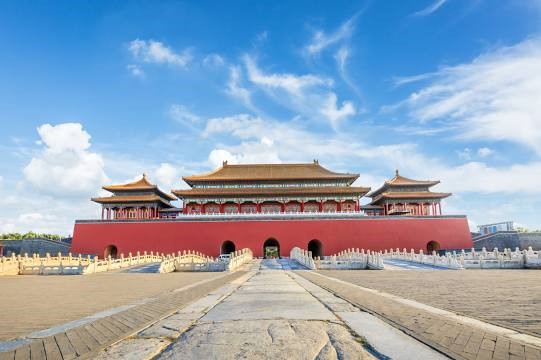China’s international charm offensive is facing challenges as reality hits policymakers and the public in anticipation of the upcoming meetings. Hardline policy is to remain intact after the upcoming 20th Chinese Communist Party Congress in October, according to Chinese officials. Policy makers in Beijing are offering public statements emphatically ensuring the world that the country’s policies toward Taiwan and other issues will remain aggressive and that Beijing is not softening despite calls for reform. Ma Zhaoxu, China’s Deputy Foreign Minister, signaled that there will be “no change” in China’s “assertive diplomacy” after the meeting this month.
US Ambassador to China, Nick Burns, says that China’s position is endangering a peaceful solution to the Taiwan issue and destabilizing the region. He called out Beijing, saying “If anyone here changed their policy, it really is the People’s Republic of China, with their overreaction…” to the visit of Rep Nancy Pelosi, according to Burns. Washington, he says, is not altering its one China policy and will continue to compete with China.
On Wednesday, in advance of the party meetings, Chinese state media reported that Chinese Premier Li Kejiang announced Beijing is set to move forward with its domestic economic policy program during the last quarter of the year claiming the country has recovered from Covid. He suggested the country’s economy now is stable. Since May Beijing has been cutting taxes and infrastructure spending in an attempt to revive the economy crippled by its zero-Covid policy and property crisis.
A Caixin investigation, according to James Palmer writing in Foreign Policy, says that that local governments are filling the financing hole created by the collapse of the real estate market with a desperate measure. “Local government funding vehicles, which sell municipal bonds, are being pressured to get into business themselves and buy land from the government. Not counting taxes, land sales made up 42 percent of local government revenue in 2021—up from just 5.9 percent in 2000.” He points out that there no way local government funding vehicles can fill this gap as there is no demand from buyers, who are waiting for the state to allow prices to fall.
On Monday the yuan, despite efforts by the People’s Bank of China, hit a 28-month low against the dollar. The leadership in Beijing may find it embarrassing as it typically associates a strong yuan with a strong balance of economic power with the United States. The World Bank recently slashed its prediction for China’s GDP growth from 5 percent in the spring to 2.8 percent. The reaction among Chinese is that the country is a falling into a recessionary period when it fails to meet government growth targets.
Corruption also continues to impact Xi’s ability to continue domestic reforms. Beijing announced Monday that the “godmother” of China’s shipping industry, Li Li, a former Communist Party chief and president of the Beijing branch of the Export-Import Bank of China was recently expelled from the CCP, removed from public positions, and turned over to prosecutors on corruption charges. Coupled with weak demand for shipping this year, Xi faces a number of challenges at the upcoming party meetings.China’s foreign policy also faces challenges. A senior official in Taiwan, Deputy Minister of the Mainland Affairs Council Chui-Cheng Chiu, warned on the Wednesday “ Chinese President Xi Jinping is embracing an extreme form of “closed door nationalism” and “totalitarianism” that threatens Taiwan’s future. Chiu’s statement comes amid increased cross-strait tension as officials in Taiwan anticipate that Xi will continue to consolidate power and threaten to reclaim control of Taiwan. All of this comes amid news that BA.2.75.2, the new Omicron strain found in China is showing a worrying ability to evade immunity. Xi intends his legacy to be the return of Taiwan. His path forward is becoming less clear as some analysts report China’s economy may never take over that of the United States. Neighboring states, once friendly to China, also are rejecting overtures from Beijing as Xi seeks to realign the world in favor of the communist giant’s view of the international order. The upcoming Chinese Communist Party Congress may not go as well as Xi Jinping hopes, although analysts suggest he will continue to consolidate his power.
Daria Novak served in the U.S. State Dept.
Illustration: Pixabay
